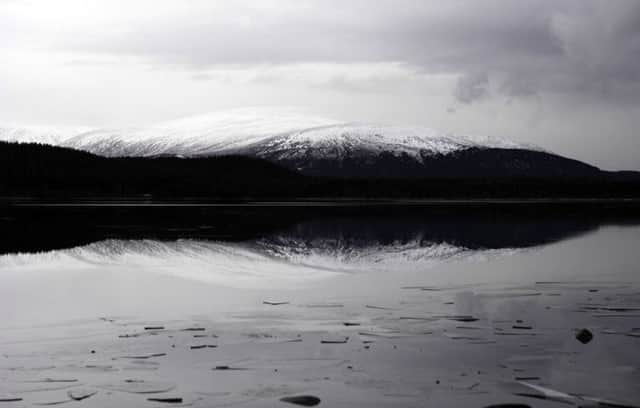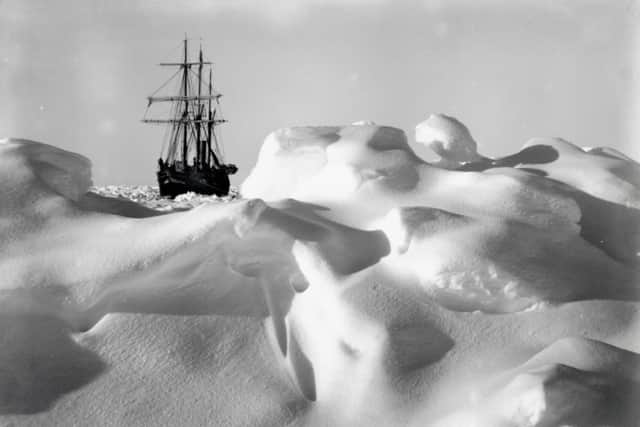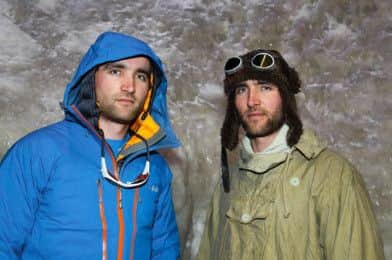Duo in training for Shackleton Arctic expedition


Hugo and Ross Turner, 25, from Devon, are crossing the Greenland ice cap to raise money for Spinal Research after Hugo was nearly paralysed in an accident on a Cornish beach eight years ago.
The pair have been in the Cairngorm Mountains preparing for the expedition in May.
Advertisement
Hide AdAdvertisement
Hide AdThe Department of Twin Research at King’s College London is using the expedition to study how modern clothes, food and equipment protect the body.


Hugo will have modern kit, equipment and food, while Ross will be kitted out with clothes similar to those worn by Sir Ernest Shackleton 100 years ago.
Ross will also have an early 20th Century polar expedition diet. He will be pulling a 1900s-style sled which is being specially made for the Greenland ice cap trek from Kangerlassauq to Tasiilaq.
King’s College will monitor if and how Hugo benefits from advances in modern technology and nutrition.
Hugo told The Scotsman: “The preparations in the Cairngorms have been a huge help.


“They are stunning and we are really privileged to have seen such a stunning part of the world. It is helping us to get ready for the real challenge. We have had a perfect week, and the only difference in the study is body temperatures. Putting a tent up in 50 knot winds is quite interesting also.”
The intrepid pair of twins will be paying homage to Sir Ernest Shackleton by embarking on the icy trek with one using the same food and clothing the polar explorer used on his expedition to the Antarctic a hundred years ago.
The 25-year-olds will be carrying out the trip in the centenary year of Shackleton’s Endurance Expedition in 1914.
Advertisement
Hide AdAdvertisement
Hide AdWhile one of the twins will be equipped with modern gear and the latest technology, the other will eat the food Shackleton would have eaten and wear the same kit in order to compare just how difficult it was to be an explorer a century ago.
The twins hope that the 340 mile expedition will raise over £250,000 for Spinal Research which carries out ground-breaking research in ending spinal cord paralysis that could enable millions of people to walk again.
Aged only 17, Hugo suffered a freak accident that left him with a broken neck, and suffering from neck down paralysis.
It was only after corrective neck surgery and six months of rehabilitation that Hugo narrowly missed becoming a tetraplegic.
Hugo said: “It literally was a lucky break. I was just millimetres away from being paralysed.
“It would be great if people can back us with sponsorship, giving whatever they can afford to help end paralysis for children and adults.”
Promising sportsman Ross also suffered injury tragedy when he broke his leg while playing rugby for Loughborough University in 2010, putting an end to his playing ambitions.
But the setbacks have not stopped the duo from carrying out outstanding feats of endurance in the name of charity.
Advertisement
Hide AdAdvertisement
Hide AdTwo years ago, the pair raised £150,000 for Spinal Research by completing the challenging Trans-Atlantic Woodvale Rowing Race in just under 42 days, coming third and breaking two world records for being part of the youngest crew to achieve such a feat.
Hugo and Ross were also the first twins to row across any ocean anywhere in the world.
The pair will be pulling sleds across the inhospitable terrain of Greenland, trekking up to 12 miles a day and competing against each other with different supplies at their disposal.
Throughout their expedition, which is expected to last between 20 and 30 days, the twins will be constantly monitored by a team from the Twins Research Department who will be studying how their bodies cope in an extreme environment.
The researchers hope to be able to compare the importance of genetic and environmental influences in a wide range of common conditions such as osteoporosis, arthritis, diabetes, and asthma, from the twins’ experience.
Ross said: “We’ll both be taking blood, stool, and saliva samples every day of the trek which will be tested as soon as we get back from Greenland to compare how we have developed. It will be a hindrance but that’s our choice.”
Sir Earnest Shackleton was a seasoned polar explorer when he set out on what became known as the Endurance Expedition in 1914-17.
Attempting the first ever crossing of the Antarctic continent, tragedy struck when Sir Earnest’s ship, Endurance, was stuck in waters before the expedition party could land. All 28 crew on board were forced to abandon ship for lifeboats.
Advertisement
Hide AdAdvertisement
Hide AdShackleton eventually made an 800 mile open boat journey with five others to alert help, resulting in everyone making it home with no loss of life.
The Turners challenge has the backing of notable figures such as actor Sir Kenneth Branagh, explorer Sir Ranulph Fiennes and adventurer and TV presenter Bear Grylls.
Jonathan Miall, chief executive of Spinal Research said: “We believe that, with everybody’s help, paralysis can be beaten.
“The Turner twins are bravely taking on a tremendous challenge and we salute them.”
The expedition is due to begin on May 1.